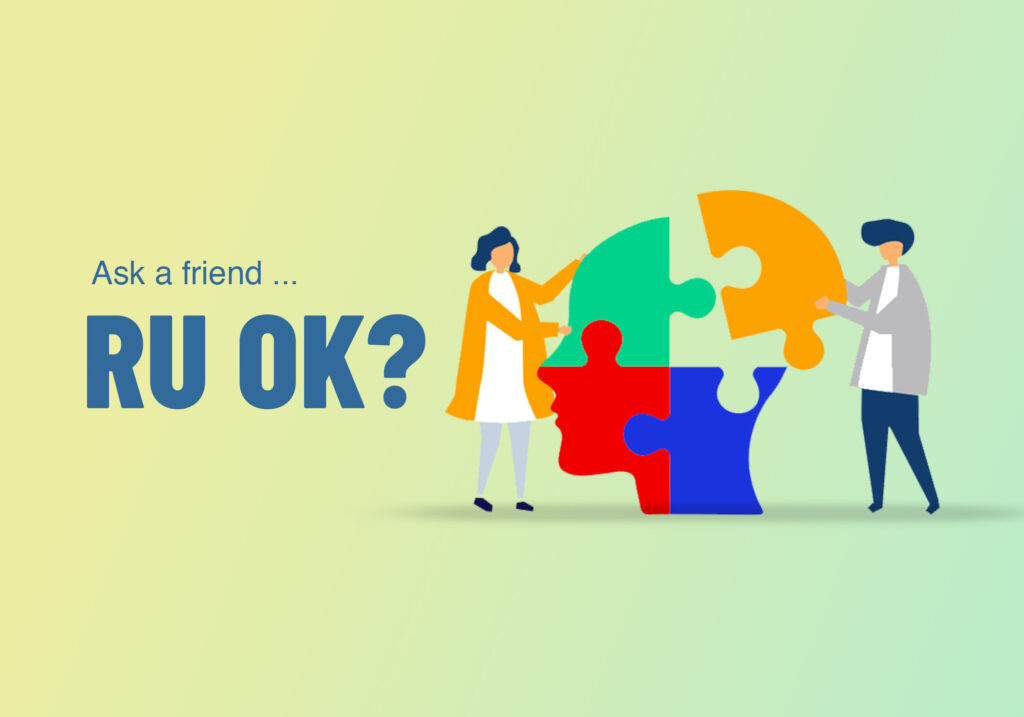There has been a lot of discussion over the past few years around the cost of mental health in the workplace, both financially and personally. The business case for supporting mental health in the workplace has been well and truly made. But, of course, like many things, COVID-19 has turned things on its head, and the impact on individuals has escalated during the ongoing lockdowns creating financial uncertainty, increasing isolation, and restricting access to exercise and other activities that help improve our mental health.
Mental health is a subject dear to my heart. I deal with depression on a near-daily basis. Most people who know me would see me as a confident, extroverted person who embraces the fun things in life. Those that know me well also see the other side. Days when it is tough to get out of bed, avoiding group interaction, loss of self-confidence and self-esteem, and get lost ruminating about anything and everything.
I have also supported friends, family and staff through some really tough times in their own lives through the years. As such, I have become a vocal advocate for reducing the stigma attached to mental health. And for anyone thinking that there is no longer a stigma attached to mental health, try getting life insurance once you have disclosed treatment for depression to an insurance underwriter.
As a parent of teenagers, I see the enormous pressure facing our young people. Be it from parents, peers or, more broadly, society. We talk about the negative impact of social media but seem powerless to stem it. I’m filled with sadness as young people at local high schools in my community take their own lives. My point is mental health issues don’t discriminate – they can affect anyone regardless of age, gender, or income. Some are easily treated, whilst others battle demons every day.
This R U OK Day, I would encourage you to look at mental health differently.
- Recognise that everyone’s experience of life is different to your own. You may not suffer from depression or anxiety, or you may have great coping strategies. That doesn’t mean it isn’t real, it isn’t serious, or that what works for you will work for others. Exercise IS great for your mental health, but if getting out of bed is a struggle, going for a walk or run can be virtually impossible.
- Learn to recognise the signs that someone could be struggling. Changes in behaviour, mood or the things people talk about are good indicators but may often be less obvious than you think. Someone suddenly becoming more energetic and adventurous, engaging in more risk-taking may be just as likely as someone who is becoming withdrawn to be facing mental health challenges.
- Loneliness and isolation are significant stressors at the moment. Stay in touch with people, reach out to friends and colleagues, respond when people reach out to you.
- Most people aren’t looking for solutions, they are looking to try and make sense of their own situation. So don’t try to dismiss, diminish, or solve their problems, but rather listen with an open mind and ask questions that help them articulate their feelings, and support them in finding help.
- Be aware of resources that you can direct them to such as RUOK.org.au or beyondblue.org.au and follow up. Take some time to find about more about mental health and how it affects others.
And remember, asking someone R U OK does not mean that you have to take on their problems. But by listening, asking meaningful questions and simply being present may be enough to change someone’s life.
And finally, if you are concerned about your own mental health, there is a simple checklist that may help at https://www.beyondblue.org.au/the-facts/anxiety-and-depression-checklist-k10 along with a wealth of other great information.
I hope U R OK and reach out if you would like to start a conversation.
For more information, check out:





